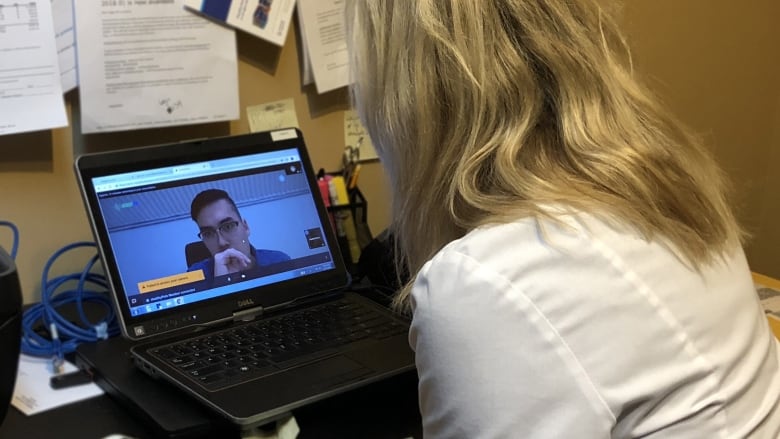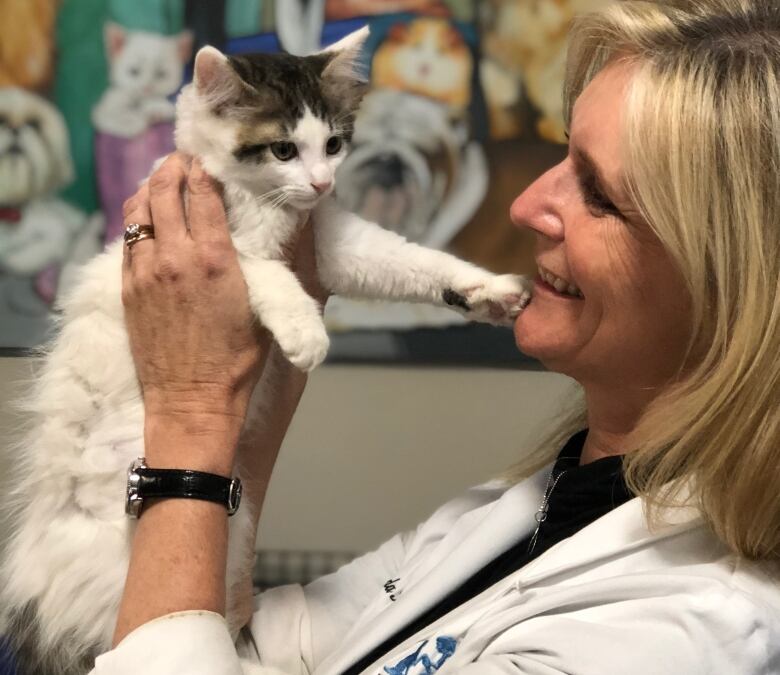Virtual vets: New video veterinarian services aimed at millennials

Calling a vet after hours for a possibly sick pet is an expensive venture, one that rivals calling your dentist for an emergency visit.
That's something Emma Harris knows all too well. Her dog Bo, a 3-year-old yellow lab retriever, had a rare lung infection calledlungworm. It took a year and $10,000 to diagnose.
"When my fiance and I sort of decompressed from all the stress, we realized that half of those bills were out of worry and not medicalnecessity."
Telemedicine for humans is well-entrenched in the Canadian healthcare system, with most provinces offering 811 services; fast, free health advice from a nurse or otherlicensedmedical professional.
They can tell you if your health concern is something that can wait until you can get in to see your family doctor, or if it sounds like it's time to head to the ER.
Companies like Healthy Pets based in Toronto or GoFetch in Vancouver, operate on the same premise but incorporates video chat and are a paid service.
"Oftentimes people's concerns don't necessarily start out as, 'I have this major medical issue'but it's something that's bothering them, like: my pet might be limping or not sleeping through the night, maybe he or she ate food and has an upset stomach," explained Adam Little of GoFetch.
"What we find is usually this polarizing behaviour: they either think things are emergencies that aren't and they can wait to go see a primary care person much like in our own lives or they wait far too long and issues that could have been resolved with more minor interventions become major issues, and there's obviously a cost and complexity associated with that."

Burgeoning industry
The idea is still very new;the College of Veterinarians of Ontario has only allowed its members to practise telemedicine since April 2017.
One of the criticisms of telehealth is the concern that it will deter pet owners from actually getting their dog or cats checked in-person.
But both the college and the Canadian Veterinary Medical Association a very clear that members are only to act as "consulting veterinarians," limiting them to advice and triage. They can't diagnose or write prescriptionsunless the pet owner is a pre-existing client.
"It definitely doesn't replace in clinic physical exams, it does not replace some of the testing that has to be done but it's a really great tool to communicate and educate clients," said Brenda Taylor, co-owner of the Highway 24 Veterinary clinic in Guelph, Ont. She's been part of Healthy Pets'telemedicine team for about sevenmonths.
After all, the consulting vets can only see their clients through a web cam and have to rely on the pet owner for descriptions of what a lump or bump might feel like.But, Taylor says, at least it's a trusted alternative to Doctor Google.
Making vet care work for millennials
Telemedicine for pets is a wholesale change of how the industry does business that directly caters to the biggest emerging pet owner demographic in North America: millenials.
Statistics show three out of every four millenials are pet owners and they want to be able to communicate with experts on demand, via text, email or social media.
That's part of why both companies offer their telehealth programs as a subscription: smaller monthly payments in exchange for a set number of virtual vet visits.

"It kind of sets the stage for,we're going to have an ongoing relationship. Each interaction strengthens the next one, reinforces the importance of that veterinary relationship and allows up to build a much more complete picture," said Little.
"And I think the subscription model reflects the fact that we're going to be there for you. We don't view your pet's health as a once a year activity, we view it as an everyday activity. And whether or not you're using our services on that frequency we want you to have the peace of mind that it's available."
Meanwhile, Taylor says she sees the potential beyond that millennial demographic: cat owners, pet owners with mobility issues, and pet hospice, helping people and their pets get through that final stage of life. It even has the potential to open up vet care for people living in remote communitieswith only occasional access to vet care.
"I vastly underestimated the value of peace of mind to our clients and also the value of delivering information in a trusted way," Taylor said. "That would probably be the number one thing I've learned through this process."













_(720p).jpg)


 OFFICIAL HD MUSIC VIDEO.jpg)
.jpg)



























































































